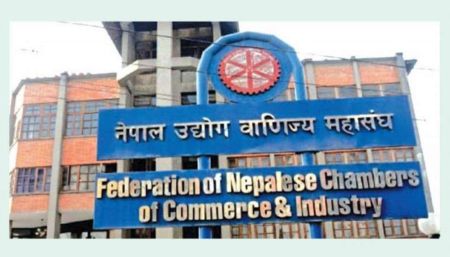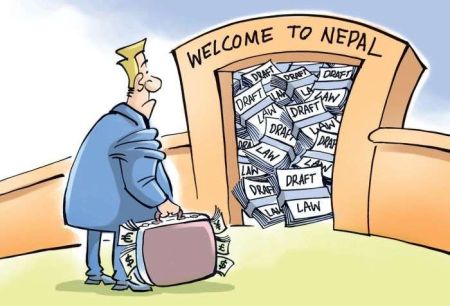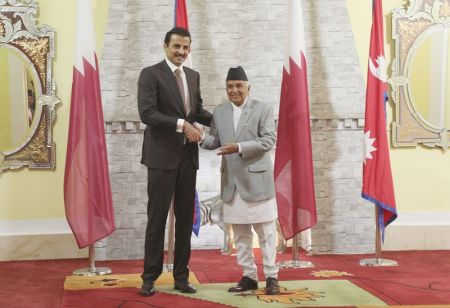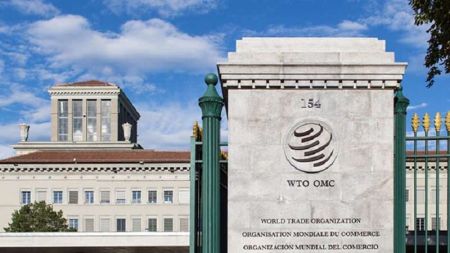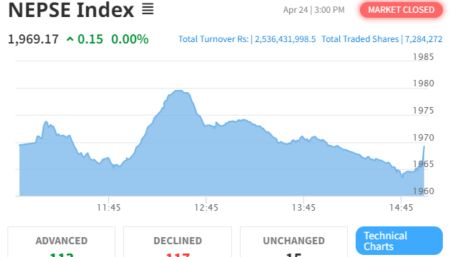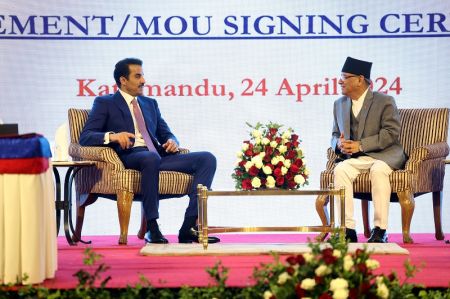Allied Trade Link International is the authorised distributor of Karbonn and Panasonic phones in Nepal. Established in 2009, the company first launched the Karbonn smartphones in Nepal which has become major handset brand in the country’s market. In 2014, the company introduced Japanese brand Panasonic which has been expanding its foothold in the Nepali market. In an interview with New Business Age, Manish Rajbhandari, Managing Director Allied Trade Link International, shares the performance of Karbonn and Panasonic in Nepal, problems and prospects of the domestic smartphone market, the implementation of Equipment Identity Registration (EIR) system, along with the upcoming products from the Japanese and Indian smartphone majors. Excerpts:
How is the Panasonic smartphone brand performing two years on after its introduction here? How has been the response from customers so far?
The brand presence of Panasonic smartphones is increasing day-by-day. We feel very positive from the response and feedback that we have received. As a multinational Japanese brand, customers see Panasonic for its quality and competitive pricing of smartphones compared to other international brands.
What is the market share of Panasonic in the Nepali market?
The share of Panasonic in the domestic smartphone market is between 4-5 percent. But with the increased interest towards the brand and the plans we are coming up for this year, I am hopeful that the figure will double.
What are the USPs (unique selling propositions) of the Japanese smartphone brand?
We are selling products with the finest Japanese technology. Similarly, the unique one-handed user interface of Panasonic handsets allows users to operate our devices smoothly. The trust customers have in our brand name is another USP.
Likewise, our affordable prices give customers maximum value for price. Many consumers who are using feature phones are likely to make their first switch to smartphones, which in most cases is Panasonic as the brand offers them fairly decent technical specifications at an affordable price.
Allied Trade Link International has been selling Karbonn handsets for over five years. How has been the performance of the Indian handset major in the domestic market? What are the reasons behind its success?
Karbonn itself is a very popular brand in India which is very well positioned in the Nepali market. The brand targets the mass and mid-mass group with products at reasonable prices loaded with top-end hardware and software features. Innovative products along with a large product portfolio are the major reasons behind its success. For someone who is making his/her first jump from feature phones to a smartphone, it is unlikely that the next phone he will buy will be of a higher end. Indian brands tend to benefit the customers by offering smartphones with good technical specifications at lower price points. The similarity between Nepali and Indian cultures alongside easy access to Indian television channels allows more promotional materials/adverts to be shared, and relating to potential customers becomes an easy task.
What is the market share of Karbonn in Nepal?
Karbonn covers 6 to 7 percent of the Nepali handset market which will increase in the coming days. As I said earlier, our plans and marketing strategies in the days to come will be more aggressive. With a number of products and reasonable price ranges, we are optimistic in growing our market share. We have also focused ourselves on effective after sales services and easy availability of genuine accessories all across Nepal covering the major cities and a few rural areas too. We have about 22 well equipped service centres throughout the country.
How do you view the shift from feature phones to smartphones among Nepali consumers at present?
Smartphones have become a necessity for most of the mobile phone users now-a-days. Similarly, due to the increases purchasing capacity of Nepali consumers, average selling price (ASP) of smartphones has also risen to USD 30-34. The shift is happening at quite a brisk pace. With Nepal being a growing market for mobile phones, we will see more growth in smartphones in the coming days.
How do you assess the Equipment Identity Registration (EIR) system implemented by the government?
We were very positive and hopeful about the system. This will be one of the tools to control the grey market. We are ready to support the government on the EIR system. Our main concern is the implementation process. The policy will be useless unless it is executed practically and effectively. I would like to suggest Nepal Telecommunication Authority (NTA) to set up offices at customs points to speed up the process instead of compounding the hassles being faced by traders operating in a tough competitive environment. All provisions and processes must be easy for traders securing their investments. It will also be very beneficial for the end users and I believe that this will definitely help customers get original products compared to ‘grey’ products which are cheap and easily available in the market.
Apart from the EIR system, what other policies should be in place to foster trading of genuine handsets? How can the government implement a monitoring system more effectively?
The government should come up with certain policies regarding the number of service centres, availability of genuine accessories for all brands who are willing to do business in Nepal. There are lots of brands in the market which have not obtained the type approval from NTA. Selling the products of such brands needs to be strictly controlled. The government must facilitate trading houses that pay taxes through fair business.
Why are Nepali mobile phone importers opposing the government decision to reduce the VAT rebate on imported handsets?
Our biggest challenge is from the grey market. Recently, deduction in VAT refunds has ended up in an increase in mobile handset prices. The reduction of the tax rebate is likely to promote grey products as consumers get handsets at low prices, the reason being Nepal and India sharing an open border. The government should come up with a strict mechanism to stop the sales of grey products to promote healthy competition.
The demand for 4G handsets is likely to go up in the upcoming months as telecom service providers are said to be nearing the final stages of launching 4G services. How is Allied Trade Link preparing to meet the demand?
Karbonn and Panasonic already have a wide range of 4G smartphones in their product portfolio. Allied is ready to launch those products. We have already launched some 4G enabled handsets in Nepal.
Stiff competition is being observed in the domestic smartphone market. What are your plans to keep ahead of the competition?
We have some new models from Karbonn and Panasonic loaded with the latest technology which we believe will keep us ahead of the competition. We look forward to providing phones with the latest features at very affordable prices while also ensuring better after sales services compared to other brands. Innovation and new functions will be added in the upcoming products which will help us to stay ahead.
Are there any new Panasonic and Karbonn phones in the pipeline for Nepal?
We currently have 23 models of Karbonn and 18 models of Panasonic handsets. We currently launched two models with VR in Karbonn and will be launching VR in Panasonic too at very competitive prices. We have more product s in the pipeline for August and September. Some of the upcoming handsets will have 3GB and 4GB RAM along with new features. We will also launch high-end, mid-range and budget handsets in the near future. Brands such as Karbonn and Panasonic are continuously working on R & D to develop new innovations to stay ahead in market.






